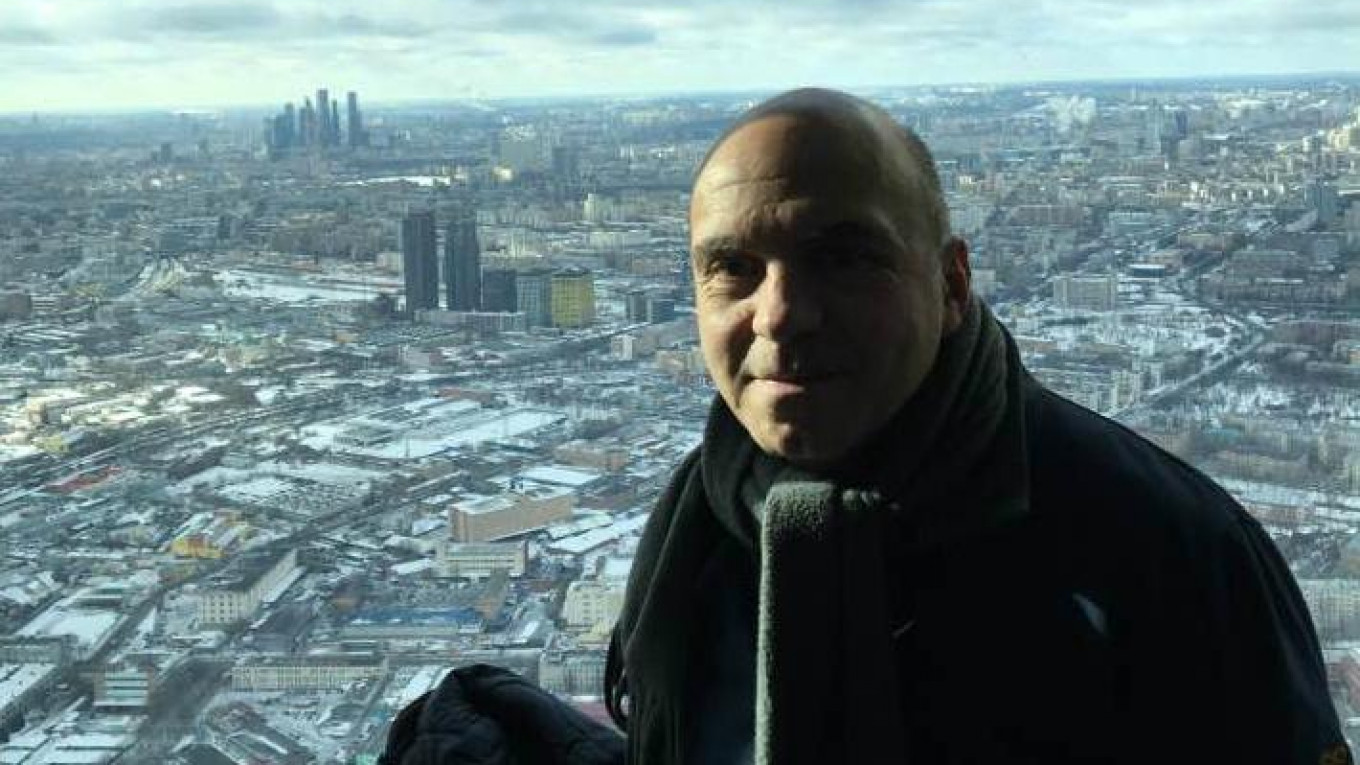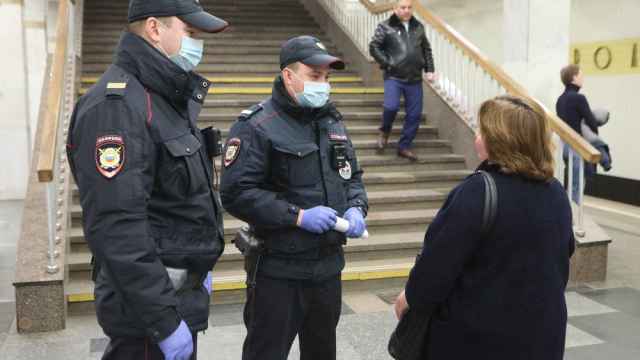Born in Colombia, at the age of four Luigi Consistre moved to Italy, where he grew up in Rome. he graduated from the Sapienza university of Rome in 1990. he now works for the Bank of Italy, which is affiliated with the Italian Embassy in Moscow.
When I arrived in Moscow four years ago it was completely different. Russia was heading the G20 summit and it was interesting that Russia was at the center of the world, giving advice to the rest. At that time, it was leading the way of thinking; four years later Russia has a completely different role. Russia was also coming from a period of growth; the quality of life and standards of living were higher than now.
At first it was very easy for me to meet people. I remember I wanted to organize a party in my home so I asked a friend to help me. She made it a public event on the Internations [expat] website and in the end 100-150 people came to my house! There were people that I didn’t even know and I would then meet them on the street and they would say “I met you in your home!”
My favorite place for eating pizza is Pinzeria. It’s not far from the Cathedral of Christ the Savior. I took Italian people there to eat and they were actually pleasantly surprised. I was also recently in another Italian restaurant, Balzi Rossi, they put on very beautiful events there too. I’m not a very good cook, but sometimes I cheat and my mother gives me frozen food from Italy that I can just microwave in two minutes!
There is a big Italian community here. If you want to live like an Italian here, you can — just meeting Italians and going to Italian parties, watching the football on Saturday and Sunday, eating pasta and pizza. I don’t do it, but there are people who do.
I think that Italians get used to Russia quite easily. In some ways we have the same problems as Russians: What is a scandal for an American or a German is quite easy to accept for an Italian. For Italians it is easier to understand Russia and the Russian mentality than [it is] for the English and Germans, for example. For some nationalities, coming to Russia is very strange because of their rigidity. We are more flexible.
Last time my daughter came to visit it was -20 C in January. That I can live with, what I cannot live with is bad weather from October till April. The idea people have in Italy is that in Moscow it is always -20 C. I don’t think the weather here is so nasty; the bad weather just goes on for too long.
I often go to the theater here. I have a friend whose mother is a Russian playwright and sometimes she gives me the Russian script in advance, that way I can understand it better. When I know the story I enjoy it more.
Once I went to the Vorobyovy Gory ski resort in the south of Moscow. It is a very strange sensation to ski there, because you associate skiing with a mountain view and fresh air, but there you are skiing whilst looking at tall buildings and fumes coming from the streets. It was great fun.
I have a friend who often invites me to the banya. I’ve been to lots of historic banyas in the center. You can go outside in the snow. I find it a nice thing to do, very interesting culturally. It is something Russia has exported all over the world.
I thought that it was going to be very hard to live here, but it’s not — living in Moscow is easy. That said, of course it can be difficult, Moscow is a city with many problems, it’s a city with a lot of traffic. The worst part about going home is the traffic to the airport! It will be a culture shock going back to work in Italy soon.
A Message from The Moscow Times:
Dear readers,
We are facing unprecedented challenges. Russia's Prosecutor General's Office has designated The Moscow Times as an "undesirable" organization, criminalizing our work and putting our staff at risk of prosecution. This follows our earlier unjust labeling as a "foreign agent."
These actions are direct attempts to silence independent journalism in Russia. The authorities claim our work "discredits the decisions of the Russian leadership." We see things differently: we strive to provide accurate, unbiased reporting on Russia.
We, the journalists of The Moscow Times, refuse to be silenced. But to continue our work, we need your help.
Your support, no matter how small, makes a world of difference. If you can, please support us monthly starting from just $2. It's quick to set up, and every contribution makes a significant impact.
By supporting The Moscow Times, you're defending open, independent journalism in the face of repression. Thank you for standing with us.
Remind me later.






